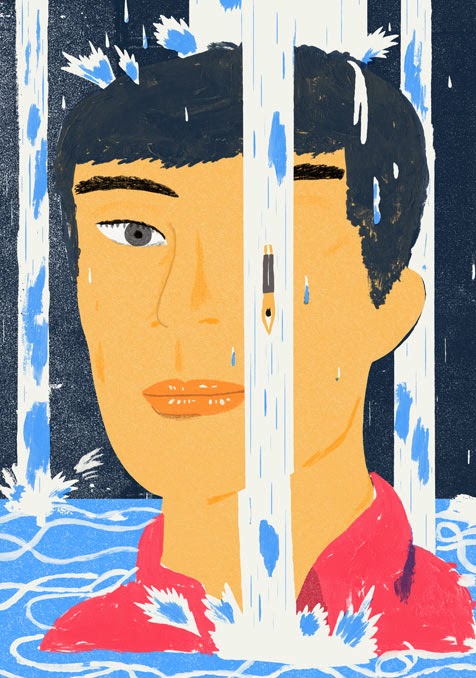Gail Simone (Batgirl, Birds of Prey) gives the iconic fantasy heroine a fresh new attitude! Red Sonja, the She-Devil with a Sword, intends to pay back a blood debt owed to the one man who has gained her respect... even if it means leading a doomed army to their certain deaths! Who is Dark Annisia, and how has this fearsome warrior accomplished what no god nor demon has been able to do: force Sonja to her knees in surrender? An epic tale of blood, lust, and vengeance, Queen of the Plagues takes Red Sonja from the depths of her own grave to the heights of battlefield glory.This is forms an introduction and origin story for Red Sonja. Not having read about her before — in fact, the main reason I'd even heard about her was thanks to my mother talking about her in the context of Conan the Barbarian books. But I wanted to give it a go because of the female lead character and because I've heard lots of good things about Gail Simone.
The story is split between the "present" and events that happened three years earlier. Sonja's city is threatened by both plague and a supernatural (or, well, non-human) army, and it is her job to defend it. With the help of two teenage body guards. The story is filled out by flashbacks to Sonja's time as a gladiator-type slave three years earlier and to her childhood.
It was an interesting story and I enjoyed learning about Sonja as I turned the pages. I also liked the progression of her clothing. Although the start of each issue had a full-page illustration of the traditional chainmail bikini, and she was wearing aforementioned bikini at the start, she gradually acquires more clothes as the story progresses. By the end she was even in full-body armour, which was exciting. I don't know if it will stick in subsequent issues, but it made me happy. That chainmail bikini is SO incredibly stupid.
Anyway, I highly recommend Red Sonja Volume 1: Queen of Plagues to anyone with a passing interest in the character or barbarian-type stories in general. I'll definitely be getting the second volume when it comes out (later in the year, according to Goodreads).
4 / 5 stars
First published: February 2014, Dynamite Entertainment
Series: Red Sonja Volume 1 of ongoing
Format read: ePub comic (on iPad iBooks — not a bad experience, almost as good as ComiXology, which I shall be avoiding in the future)
Source: Humble Bundle


















































